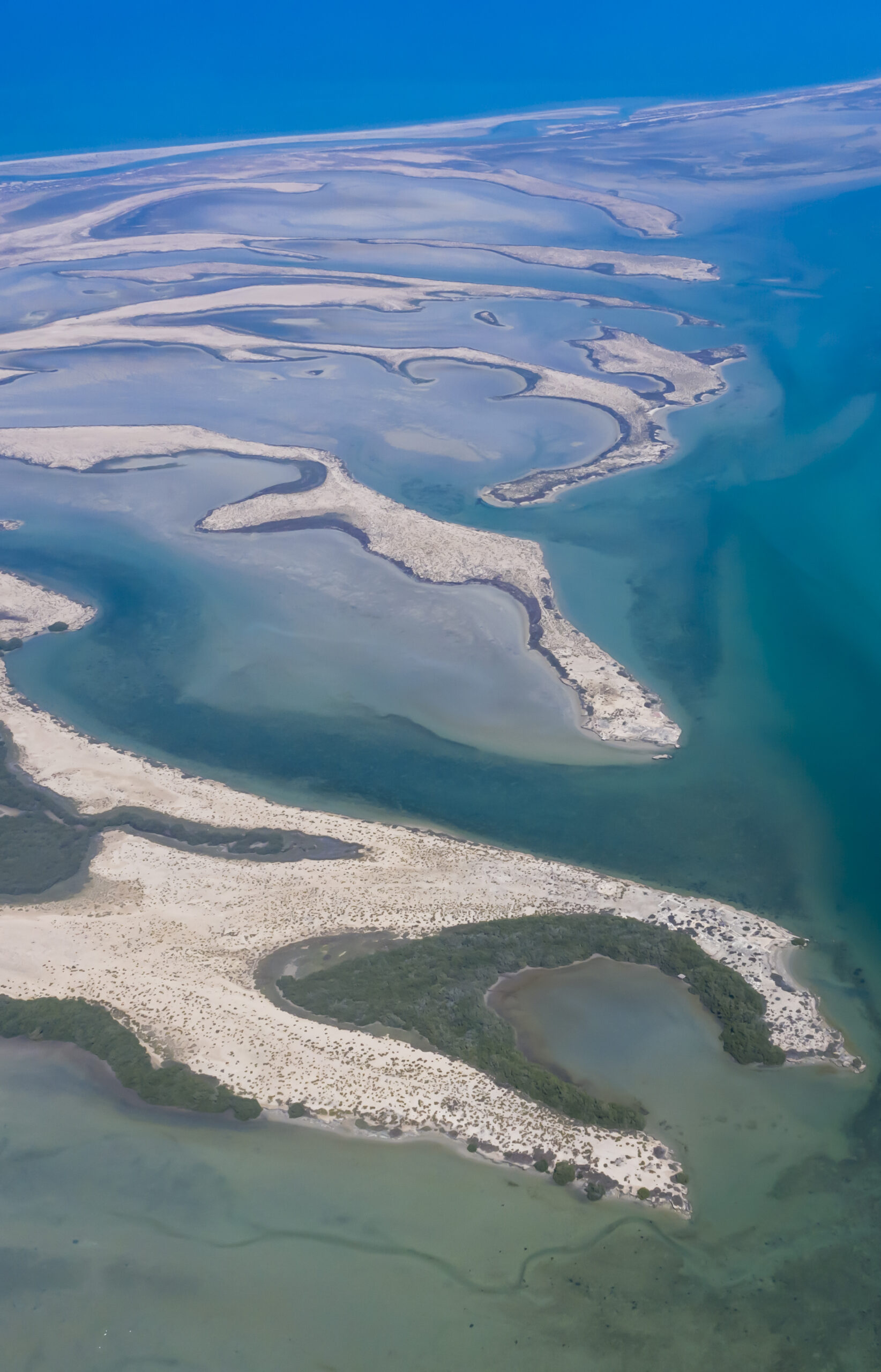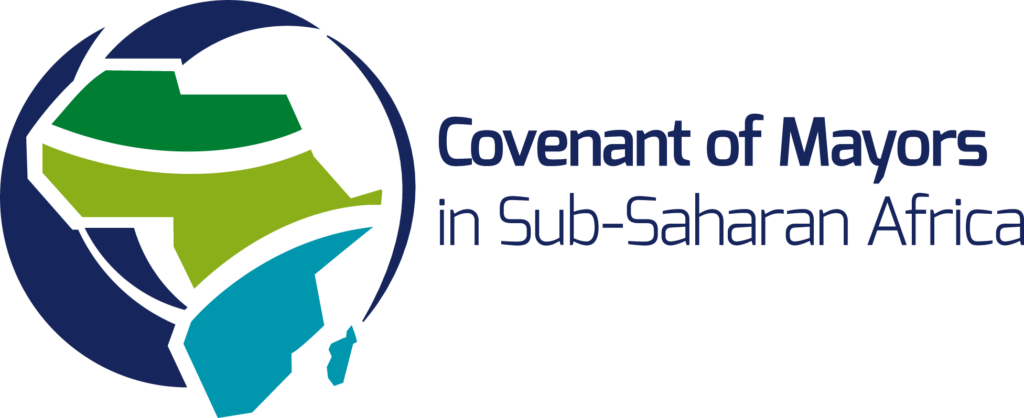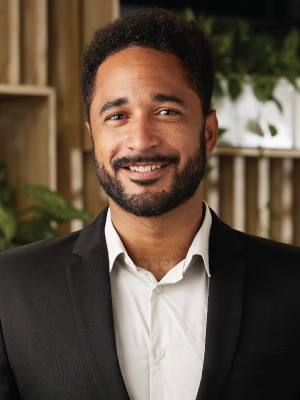27 November 2023
Urban Africa in action at COP28
ICLEI Africa and partners collaborating for impact



Our cities and regions across the continent are gearing up to make their voices heard loud and clear at COP28, presenting a strong, unified constituency of African subnational government leaders that demonstrate a shared commitment to urgent action and on-the-ground delivery.
We will engage at COP28 through a range of more than 30 interventions, stressing the urgent need to scale up a rigorous all-of-economy, all-of-society approach which leads to urgent and significant climate action this decade.

This year, ICLEI – Local Governments for Sustainability, the focal point of the Local Governments and Municipal Authorities (LGMA Constituency) and UN-Habitat, the United Nations entity responsible for sustainable urbanisation, have announced plans for a joint pavilion at in the Blue Zone at COP28. The Multilevel Action & Urbanization Pavilion will function as the global stage for the city and subnational climate agenda at COP28. It will not only spotlight the challenges and needs, but also showcase the accomplishments and commitments, of local and subnational actors, on climate action.
Explore daily highlights of urban Africa in action at COP28
See below highlights from on-the-ground
Check back regularly to keep up with urban Africa in action at COP28
Including the World Climate Action Summit and the Local Climate Action Summit
Including “Health / Relief / Recovery and Peace” and “Finance / Trade / Gender Equality / Accountability” and “Energy and Industry / Just Transition / Indigenous Peoples”
Including “Multilevel Action, Urbanisation, Built Environment and Transport”
Including “Nature, Land Use, and Ocean” and “Food, Agriculture and Water”
Our key interventions
KEY
ICLEI Africa event
ICLEI Africa featured at event
ICLEI CBC event
CoM SSA featured at event
All times below are indicated in the local Dubai time zone (Gulf Standard Time).
1 December
11:00 - 12:00 SDG Pavilion, Blue Zone
Report Launch: Toward Africa’s Sustainable Cities – Why Clean Cooking Matters
Hosted by Clean Cooking Alliance
1 December
19:00 - 21:30 Goals House, Concrete, Alserkal Avenue
Circular Cities: Housing for Resilient Urban Communities
Hosted by Goals House
2 December
11:30 - 12:15 LCAS Hub
Inclusive Strategies for Local Climate Adaptation & Resilience
Hosted by ICLEI
Co-hosted by Cities Race to Resilience
2 December
13:00 - 14:30 SA Pavilion
The Role of Local Authorities in Climate Proofing the Built Environment
Hosted by SALGA
2 December
14:00 - 14:45 Women’s Pavilion/Humanitarian Hub
Healthy Cities, Climate Finance and Resilience Green Zone
Hosted by GGWoA
Co-hosted by WHIS, ICLEI Africa
2 December
14:30 - 15:15 Action Lab 1, Al Shaheen, LCAS
Nurturing Nature: Bringing Nature Positive Cities to the Forefront of Urban Climate Action
Hosted by High-Level Climate Champions, ICLEI, World Bank, UNEP
2 December
16:30 - 17:30 Spanish Pavilion
Just & Sustainable Energy Transition for people & the planet: How mayors are taking action to leave no one behind towards the Paris Agreement Targets
Hosted by ICLEI through the SESA project
Co-hosted by ICLEI Africa
3 December
14:00 - 15:30 Somali Pavilion
Charting a New Development Pathway: Combating the Pandemic of Inequality for local level climate resilience
Hosted by ICLEI Africa
Co-hosted by CoM SSA
Featuring the Covenant of Mayors in Sub-Saharan Africa (CoM SSA)
4 December
09:00 - 10:30 SA Pavilion
Integrating resilience into municipal planning to facilitate climate finance
Hosted by DBSA, C40, SALGA, African DB
5 December
08:30 - 09:15 LGMA Pavilion
Global South’s Climate Response: Local Governments’ Resilience and Ambition in the Face of the Climate Crisis
Hosted by ICLEI Afruca, ICLEI South Asia, ICLEI South America
5 December
16:30 - 17:30 Room at European Pavilion
Empowering Urban Africa: Sustainable Energy Solutions for Sub-Saharan Cities (VIRTUAL ONLY)
Hosted by European Commission & CoM SSA Secretariat
Co-hosted by CoM SSA MSOs, ICLEI Africa
5 December
16:25 - 17:25 Paris Committee on Climate Change (PCCB) Hub
CapaCITY through Co-creation: comparing transformational processes of capability development for urban resilience
Hosted by CLARE
5 December
15:45 - 17:00 UN-Habitat ICLEI Pavilion
Strengthening Urban Resilience for a Changing Climate
Hosted by UNDRR, UN-Habitat
6 December
10:00 - 12:00 Women's pavilion Majlis, Green zone
COP28 Presidency session on Food, Agriculture & Water
Hosted by ICLEI, C40, High-Level Champions
6 December
11:00 - 12:00 Namibian Pavilion
Redefining Resilience: Southern African Cities Unite for a Climate-Ready Future
Hosted by ICLEI Africa
Co-hosted by CoM SSA
Featuring the Covenant of Mayors in Sub-Saharan Africa (CoM SSA)
6 December
15:00 - 17:00 Meeting Room 6 in DEC SOUTH, Blue Zone
Local Ecosystem Restoration for Nature-Positive Cities and Regions
Hosted by ICLEI CBC, Climate Champions
6 December
16:00 - 17:00 Room Lab 2 (Al Jeer)
Seizing & Catalysing the Urban Financing Opportunity to Accelerate Multilevel Action for Just Transition & Resilience
Hosted by FMDV
Co-hosted by ICLEI, ICLEI Africa, UCLG, Regions4
9 December
14:45 - 15:45 Canada Pavilion (TBC)
Towards a global treaty to combat plastic pollution in the context of the climate crisis
Hosted by Government of Canada, Quebec
10 December
09:00 - 10:00 SA Pavilion
The Food, Water & Gender Nexus
Hosted by SALGA
We are gearing up to boldly advocate for a range of pressing issues both in the lead up to, and during, COP28. These include:
1
Securing increased funding to support the development and implementation of locally driven projects in African cities, regions and towns is critical. It is imperative that funding is tailored to, and can be easily accessed by, subnational governments in Africa directly benefiting their citizens’ needs. This is crucial for building climate resilience and ensuring access to clean and affordable energy for the most vulnerable.
- FIND OUT more about how ICLEI Africa’s Sustainable Finance Centre is acting as a knowledge broker to bridge divides between crucial stakeholders
- LEARN more about climate finance from CoM SSA’s course: An introductory guide to climate finance for African cities
2
The biodiversity and climate crises are inherently interconnected and therefore need to be addressed through an integrated approach. Implementing nature-based solutions (NbS) within urban areas is crucial to advancing just and equitable, climate resilient African cities. Channelling increased investment in NbS at the city-scale that prioritises building resilience, particularly among those most vulnerable, is therefore essential. Global platforms like CitiesWithNature & RegionsWithNature play a vital role in fostering this integrated approach and ensuring a nature-positive future.
GET IDEAS from the UNA Resilience project biodiversity finance infographic
EXPLORE the Thematic Atlas of Nature’s Benefits to Dar es Salaam
JOIN CitiesWithNature or RegionsWithNature
3
Mobilisation of multilevel governance processes that enhance collaboration among national and subnational governments and communities is essential. We are actively advocating for a decisive resolution at COP28 that mandates the involvement of subnational governments in the revision of Nationally Determined Contributions in 2024.
READ the Guide to Collaborative Multi-level Governance for Climate Resilient Development
READ an open letter signed by local and regional leaders, which expresses the need for and support of multilevel action, collaboration and financing ahead of COP28
4
Strengthening efforts to propel Africa’s just transition is imperative. This encompasses equipping subnational governments to develop a vision for a just transition, and establish priority areas and locally-appropriate pathways for enacting a transition, supported by the requisite knowledge, capacity and resources. Inclusive processes are imperative to ensure no one is left behind, risks are mitigated, and opportunities of just transitions are unlocked, to enable prosperous societies, and thriving, resilient, local economies. Institutionalising and mainstreaming just transitions in the structures and processes of subnational governments is crucial for ensuring they guide these transitions in the long term.
- SEE what is being done through the Steve Tshwete Local Municipality Just Transition project
5
It is critical that we empower and prioritise historically marginalised and vulnerable groups within urban Africa, ensuring they have a voice, recognition and agency. Their active participation in shaping the vision for future cities, and planning and developing climate change policies, is vital to ensure that no-one is left behind. By fostering inclusivity, and adopting a people-centred and human rights-based approach, cities can better address sustainability challenges and improve the overall quality of life for all residents.
- GET INSPIRED by the UNA Resilience project’s human-rights based approach
6
Africa’s urban food systems need bold transformation. Achieving this requires a paradigm shift in our approach to hunger and nutrition that is grounded in the contextual specificities of Africa’s urbanising food systems. We must empower local governments to take decisive action by devolving mandates and budgets relating to the food system, and providing them with greater autonomy to develop climate resilient and socially just food systems at the city level. This increase in local government mandate over food system change in the urban context needs to be met with ambitious investment into city-level capacity building, policy development and monitoring mechanisms.
7
Accelerating access to clean cooking is crucial given that over 990 million Africans, particularly those living in sub-Saharan Africa, currently lack access to clean cooking solutions. Collaboration between the private sector, and national and subnational governments in African cities needs to be strengthened in order to increase access to context-appropriate clean cooking solutions. This concerted effort is instrumental to meeting over 50% of the Sustainable Development Goals and paving the way for a better and more sustainable future for all.
8
It is vital to recognise that water and sanitation are essential to human livelihoods and are intrinsically interconnected with all other aspects of life, including agriculture and food processing and preparation, energy production, health and wellbeing, and ecological function. These elements are threatened by the climate crisis that is driving increasing incidences of severe storms, flooding and drought. Well managed, resilient water systems can be catalysts for sustainable development in Africa. However, Africa currently experiences exceedingly low access to water and sanitation services, with only 201 million people (15%) able to access safely managed drinking water, and 1.1 billion (82%) living without safely managed sanitation services. Initiatives must therefore actively promote improved and safer access to water and sanitation, while building resilient and water-secure cities.
FIND OUT MORE about the African Cities Water Adaptation Platform
SEE how we collaborated with the City of Johannesburg to develop their Water Security Strategy
9
The rapid urbanisation taking place in Africa is putting more pressure on infrastructure and available resources. It is estimated that 60% of the infrastructure needed to service the 2050 population has yet to be built. We must design and build this infrastructure in ways that ensure future sustainability, resilience and resource efficiency. As such, paying attention to circular economy principles that aim to keep resources and products in circulation for as long as possible, is vital. We must ensure that new business models are promoted, that natural regeneration is prioritised and that less waste is produced by our cities. Where waste is unavoidable, appropriate treatment systems are needed to reduce environmental pollution and health issues. Subnational government voices are contributing to the ongoing negotiations for a new legally-binding global plastics treaty to end plastic pollution.
10
We find ourselves at a critical juncture where more proactive and collaborative climate resilience pathways need to be developed and implemented across urban Africa. These should clearly acknowledge the uneven impacts of climate change and the fact that marginalised communities, particularly informal settlement dwellers, are disproportionately affected by climate change impacts. Urgent action is needed to develop innovative, inclusive, locally led and co-created adaptation strategies. Simultaneously, there is a crucial call for the fair and sufficient allocation of resources, as well as the establishment of equitable mechanisms for addressing loss and damage.
FIND OUT MORE about the INACCT Resilience Research Project & LISTEN to its recently launched podcast for collaborative approaches to proactive and evidence-informed resilience planning and building for informal settlements in African cities
11
To fulfil the Sustainable Development Goals, align with the objectives of the Paris Agreement, and adhere to the Sendai Framework, African cities must embrace integrated and proactive strategies for disaster risk reduction and climate change adaptation. This approach is essential to build resilient urban environments where the expanding population is not only prepared to withstand, but also prosper, despite the adverse conditions and future challenges posed by climate change-induced disasters and devastating climate change impacts.
12
The prosperity of African coastal cities and their growing populations hinges on the health of our oceans, demanding urgent action to enhance resilience and develop robust climate resilience strategies, in the face of climate change. Key to this is securing increased financial support for coastal resilience projects, emphasising nature-based solutions and sustainable practices. Embracing the blue economy is vital, aligning economic activities with marine health and strengthening the adaptive capacity of coastal communities. This commitment to increased funding is both a strategic and a moral obligation to protect our coastal cities and the marine ecosystems they rely on.
IMPROVE your knowledge on adapting to climate change and enhancing resilience by doing our course
GET INVOLVED in the CitiesWithNature Coastal community of practice



CoM SSA will be hosting/co-hosting three sessions during COP28, join us virtually or in-person.
Moreover, these visionary Mayors will feature prominently as speakers at various events throughout the COP28, ensuring the local African perspective into the global climate action conversation. It is noteworthy that other CoM SSA mayors will also contribute their voices to these discussions.
Attending COP28?
Meet our COP28 delegation who are advocating for African cities and regions on the ground.
MAIN HIGHLIGHTS from COP28


The essential thing is that our challenges are almost the same, with some minor differences – this elicits lots of ideas about the potentials in our city.


The essential thing is that our challenges are almost the same, with some minor differences – this elicits lots of ideas about the potentials in our city.
Lorem ipsum dolor sit amet, consectetur adipiscing elit. Ut elit tellus, luctus nec ullamcorper mattis, pulvinar dapibus leo.
















